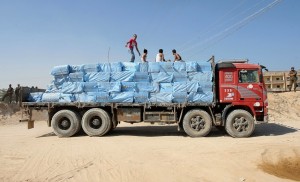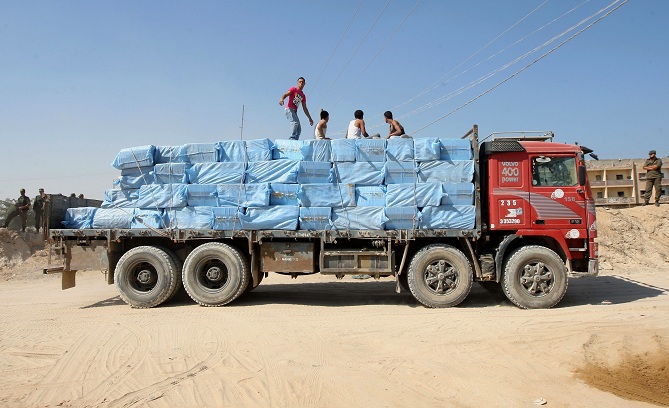
AFP PHOTO/ SAID KHATIB
According to a World Bank report released Wednesday, restrictions put in place by the government of Israel remain the largest impediment to Palestinian economic growth. The report highlighted Israeli control of large swathes of the West Bank, known as Area C, to be a major obstacle.
The Israeli government imposes a “multi-layered system of physical, institutional, and administrative restrictions that have fragmented the territory [of the West Bank] into small enclaves lacking most forms of economic cohesion” according to the report.
The document was prepared for a meeting on Sunday of the Ad Hoc Liaison Committee, a group that coordinates development assistance to Palestine. This assistance is still critically needed according to the report, the PA is set to face a US$400 million budget shortfall by the end of the year, but will do nothing for the long term sustainability of the Palestinian economy.
“Even with this financial support, sustainable economic growth cannot be achieved without a removal of the barriers preventing private sector development, particularly in Area C,” said West Bank and Gaza World Bank country director, Mariam Sherman in a press release.
“The most important message of this report is that economic cohesion is not achievable when the areas in which people have to operate and go about their business are crisscrossed by impediments.”
Israeli-controlled Area C makes up 61 per cent of the West Bank and connects various pockets of Palestinian controlled land. As the report points out, the area is “the most resource abundant space in the West Bank holding the majority of the territory’s water, agricultural lands, natural resources, and land reserves that provide an economic foundation for growth in key sectors of the economy.”
Not only are there restrictions in this area for Palestinian home construction and farming, but the World Bank cites many less obvious ways it cripples the economy.
Palestinians cannot build cell phone towers that would improve telecommunication or hotels to attract tourists to the would-be attraction of the Dead Sea, and it is difficult to scale up small businesses to larger operations.
There have been street protests in the West Bank throughout September in response to soaring living costs, petrol prices, and unemployment. Protesters burnt tyres, blocked roads and hurled stones at Palestinian police and Israeli troops as well municipal buildings. Protesters called for the resignation of top-level West Bank politicians.


